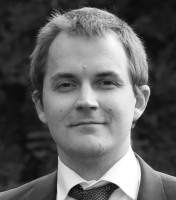Economics & Global Development
Behavioral Economics & Decision Sciences
Econometric Models & Mathematics
Post-Doctoral Fellowships
Germany
2015.09.30
For More Robust Decisions, Let Ambiguity In
Examining the case of educational choices and their impact on people’s future in the job market, he is developing microeconomic models that incorporate this missing notion of ambiguity. All existing research on the drivers of education decisions has considered risk, but not uncertainty. However, individuals’ school and career paths contain a random component, equivalent to luck on the job market. By leaving ambiguity out of the picture, traditional models assume that people can know the probability of each potential outcome of this uncertain element, luck. For this to be true, the economic environment would have to remain stable, which is unlikely to be the case, Dr. Eisenhauer points out; the advance of technology, for one thing, will alter it and one’s place on the market.
When applied to real datasets tracking people’s education and job experiences, the standard models also have trouble explaining the large numbers of high school and college dropouts. They resort to attributing this discrepancy to something called psychic costs, related to the effort of making a decision. “According to these models, psychic costs appear to dominate people’s decision-making, more than they should,” Dr. Eisenhauer says. “It’s really just an unexplained residual of the model, which is an unsatisfactory conclusion, because it provides no clear interpretation of how we can affect this problem with policies.” With his research, he aims to provide something more plausible and meaningful, with real-world applications.
He has developed a model for the analysis of economic phenomena that allows decision-making agents to confront ambiguous situations. Faced with binary choices like to go to college or not, to graduate from college or drop out, the agents in this likelihood of a range of possible, uncertain outcomes, they attempt to maximize the worst-case scenario outcome. When he fits the data on education decisions to this new model, instead, he gets a better fit: it successfully reduces the discrepancy that has, until now, been explained only (and incompletely) by psychic costs.
Scientific title: Robust Dynamic Discrete Choices
To add or modify information on this page, please contact us at the following address: community.research@axa.com

Philipp
EISENHAUER
Institution
Universität Bonn
Country
Germany
Nationality
German
Related articles
Economics & Global Development
Climate Change
Finance, Investment & Risk Management
Insurance & Risk Management
Sustainable Finance
Climate Adaptation & Resilience
Greenhouse Gases Emissions
AXA Project
Driving Innovation in Economic Policy Partnership Extension
In 2024, the AXA Research Fund and the Centre for Economic Policy Research (CEPR) renewed their strategic partnership aimed at... Read more
Centre for Economic Policy Research
(CEPR)
Centre for Economic Policy Research
Economics & Global Development
Finance, Investment & Risk Management
Insurance & Risk Management
Sustainable Finance
Economic Loss & Disaster Risk Financing
Political Economy & Governance
AXA Project
Driving Innovation in Economic Policy
In October 2021, the AXA Research Fund and the Centre for Economic Policy Research (CEPR) embarked on a three-year strategic... Read more
Centre for Economic Policy Research
(CEPR)

